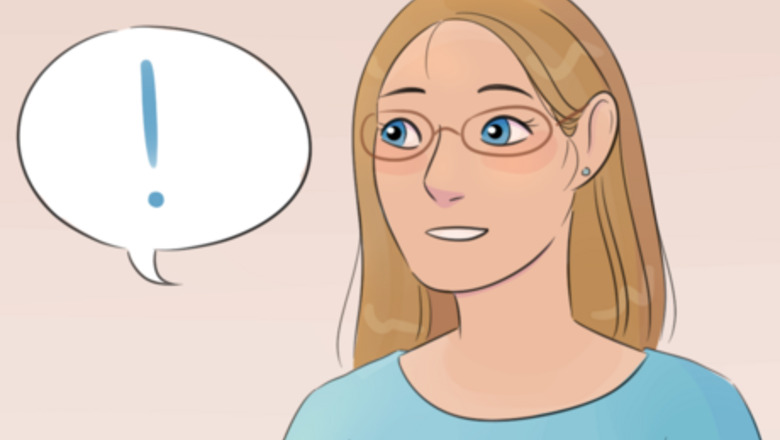
views
Creating the Character
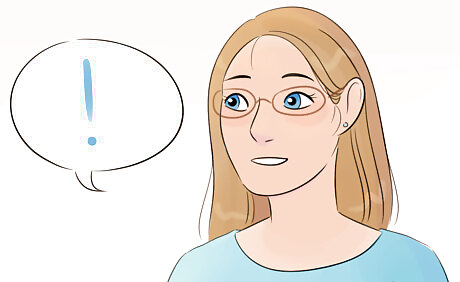
Know that many people with mental disorders prefer person-first language. This means saying "person with a mental illness" instead of "mentally ill person." It can also be generally agreed that saying something like "Amira has bipolar disorder," is more respectful than saying "Amira is bipolar". Person-first language is the norm for illnesses and diseases. For example, you'd say "person with cancer," not "cancerous person." This is something they're living with, not something that defines them. Person-first language can reduce stigma in some cases. For example, one study found people endorsed kinder beliefs when asked about "people with schizophrenia" versus "schizophrenics." Some mentally ill people do prefer identity-first language. This may be especially true for members of the Mad Pride movement or people who have had their condition from an early age.
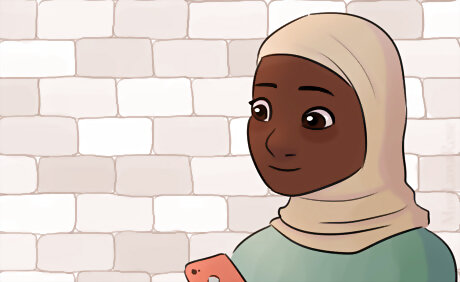
Do your research. As much as you think you might know about a specific mental disorder, you must do research on the mental disorder before writing about the condition. Research is your best friend when writing about a character's mental disorder. Research what the mental disorder is and how it's diagnosed, as well as symptoms of the mental disorder. Some great resources to research and understand mental health conditions are: NIMH Mayo Clinic WebMD PsychCentral Verywell MindTip: Make sure the resources you are using are up-to-date and accurate. It also makes a big difference if the resource has been viewed by an expert or professional.

Read articles or books by people who have the disorder(s) you're describing. Learn about how life feels and what misconceptions they discuss. See what they wish people knew about them, and what type of stories they wish were told. This can help you write something more authentic and meaningful. Even if you have the disorder yourself, it's handy to learn from the community about it. There may be new ideas you've never learned. Parent and family perspectives can be useful, too. Just remember to put the perspectives of the people with the disorder first.
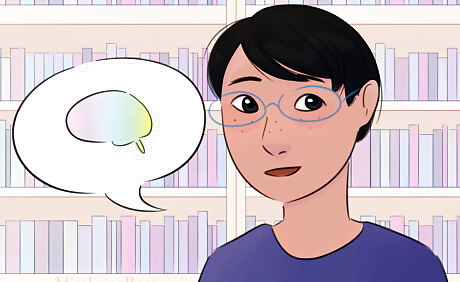
Know the difference between general neurodivergence and mental illness. Not every brain-related difference or disability is an illness. If you portray it incorrectly, you can wind up sending harmful or offensive messages in your story. Non-illness neurodivergence includes things like autism, ADHD, learning disabilities, and intellectual disabilities. These aren't illnesses, and many come with upsides in addition to downsides. Mental illnesses are disorders that rarely have upsides. These include depressive disorders, anxiety disorders (including things like OCD and PTSD), schizophrenia, paranoia, eating disorders, bipolar disorder, and DID. Many people with mental illnesses would like a cure.Did You Know? Mentally ill people can call themselves neurodivergent. But not all neurodivergent people are mentally ill, and not all of them view their conditions as disordered.
Writing the Character

Write the character that the plot needs. Shape their story, strengths, and weaknesses based on the plot and theme that you want to make happen. Write an outline. You can plot your plot and then pants the characters. Plot everything that will happen. Make a bullet point list of the things that happen in the beginning, middle, and end. List the characters. Everyone loves a good ending. So, you can start with your ending and then plot backward to find your beginning.
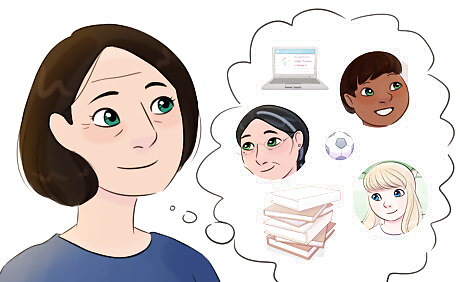
Create the character, then apply the mental disorder. Their story is far more complex than one disorder. Give them personality traits and an appearance before working on their mental disorder. You cannot simply create a character with a mental disorder and leave it at that. Everyone has a personality or traits that make up who they are. Create a character, not just someone with has schizophrenia or bipolar disorder. Characters need goals. What do they want in life? Give them strengths and weaknesses. These are essential to make a character realistic and relatable. Ideally, they should have more strengths than weaknesses, or a fair amount of both. Add concrete details like age, appearance, and so on.
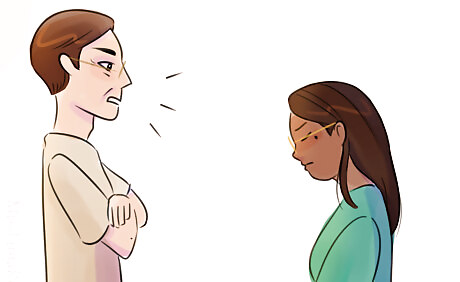
Build their a background. Each character in a story has past moments that shape who they are in the present. While it can include their disorder, it should also include details unrelated to this. Think about their family, friends, best memories, worst memories, challenges, and more. Ellie's favorite activity growing up was swimming with her big sister. One day, she fell off a diving board onto concrete, causing brain damage that gives her mood swings and brain fog. Her sister helps her regain courage to swim again. Aaron's ex attacked him when he was 17. He felt helpless and ashamed, so he never told anyone. Through the story, he builds trust with a new partner, who encourages him to see a psychologist. Then he gets diagnosed with PTSD and receives treatment, which helps. Marina's family is overprotective due to her autism (which is not an illness) and anxiety (which is). While her family hides the truth, she examines her father's past "work-related" absences and discovers proof she has a half-brother, who she sets out to find. Tip: Try not to make their background too cliché. Do not romanticize mental disorders in your story: this is inappropriate and happens far too often in stories.
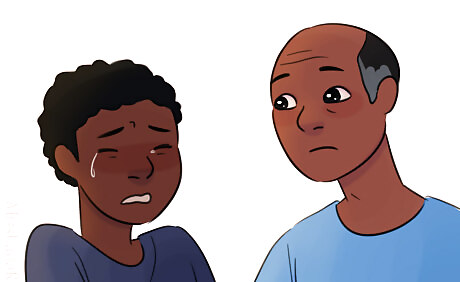
Show how their disorder affects everyday life. People with mental health conditions face many daily challenges, just like anyone else. You'll want to connect these challenges to the mental disorder you are giving your character to make them more accurate. This is also where research comes into play. When you thoroughly research a mental disorder, you also learn about challenges and symptoms associated with that condition. For example; many people with PTSD show avoidance by refusing to discuss to traumatic event(s) they experienced and isolating themselves from others. It's also likely that they will have reoccurring, unwanted thoughts about the event and what is to occur in the future.
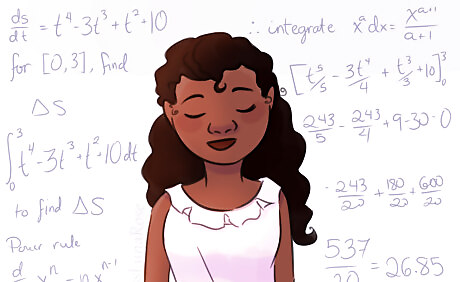
Don't forget strengths. People with mental disorders aren't burdens whose lives are filled by constant suffering. They have talents, hobbies, and useful knowledge just like anyone else. Give them something useful to contribute to the plot. Whether it's big like brokering peace talks or small like giving the main character a pep talk when they need it, let them be helpful.
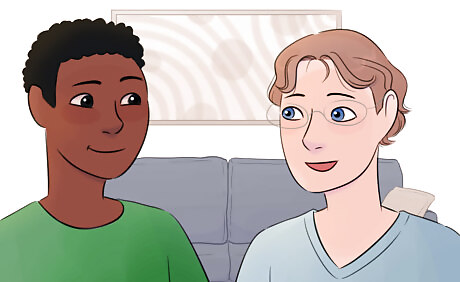
Show how they act socially. Both their personality and their mental disorder will affect this. They might try to avoid interacting with people altogether. They might be mute due to past trauma or extreme social anxiety. They might be very social and charming, but deceiving with their words. There could be one person who they specifically talk to and have a lot of trust with, but fear making new friends. Avoidance, insecurity, overthinking, stuttering, mutism, and irritability can all be ways someone could struggle. Think of the severity of their disorder. For example, someone with mild anxiety may be able to have fun at a party, while someone with severe anxiety may avoid people altogether. Keep in mind that they'll have good days and bad days. For example, depression could be more mild one day and more severe the next.
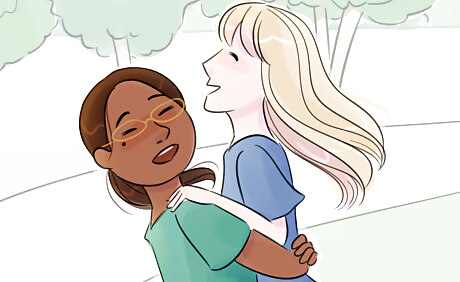
Allow them have positive times. When a character has a mental disorder, their life doesn't need to be dark, gloomy, and negative. Have them do positive things sometimes or let their life revolve around positive things with some negative moments. A character with anxiety for example, might spend most of their time by themselves overthinking, but when a friend invites them to play video games, they could accept.
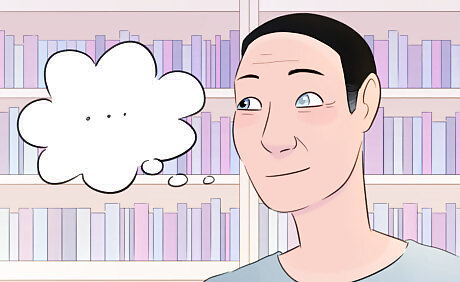
Make the reasons behind unusual behavior clear. Your character shouldn't be an unpredictable person who does things at random. That's bad writing. Instead, show the feelings and thoughts that lead to their decisions. This makes your character believable. Even if your character isn't the main character, you can have other characters empathize with them or state what they know. For example, "His sister fell silent as the man entered the room. Speaking in front of strangers was too scary for her."
Avoiding Bad Tropes
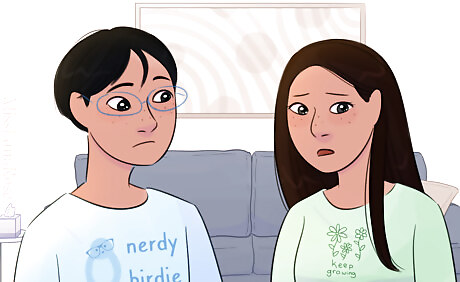
Don't romanticize mental illness. Struggling with mental health isn't beautiful or fascinating, it's awful. Treating it like a wistful tragedy downplays the suffering people experience. Self-harm isn't "decorating your body," nor are people with suicidal ideation "angels ready to come home." At best, it insults people with mental health struggles, and at worse, it encourages them to stay at their worst instead of seeking help. It's okay to romanticize good things. For example, there's nothing wrong with romanticizing enjoyment of life or finding the beauty in healthy emotional habits. But don't romanticize illness. Love can't cure mental illness. A loved one's support can help, but if love were enough, then mental illness would be much rarer than it is.
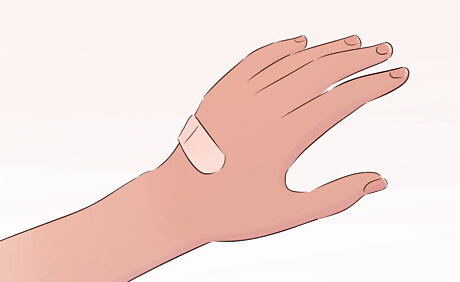
Don't treat mental disorders as violent or criminal. This overdone stereotype is often a lazy excuse at writing, a substitute for a quality villain motivation. It also increases stigma for real people with mental illnesses, making it harder to get help and social support. People with mental illnesses are more likely to be victims than perpetrators. The story of a survivor with a mental illness would be both realistic and much more original.
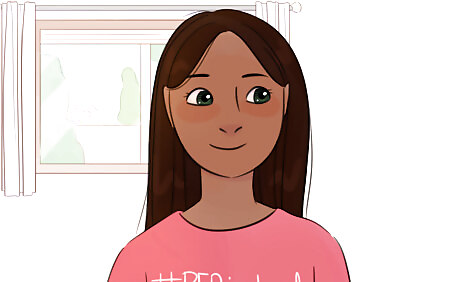
Let the character have the mental health condition by the end of the story. Almost all mental health conditions cannot be cured. However, as mentioned earlier, they can be treated and people with mental health conditions mental disorders can lead great lives. The character with the mental health condition can go with or without treatment in your story, but shouldn't be "cured" at the end of the story. Too many people with disabilities and illnesses end up cured or dead by the end of the story. This doesn't send a great message, especially to those who can't be cured.
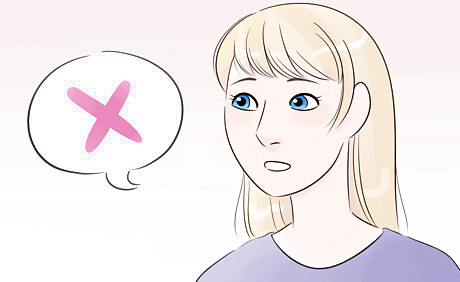
Avoid stereotypes. Life with a mental disorder is different for everybody. Despite this, there are many stereotypes writers will divert to when they know little about a mental disorder or don't have the mental health condition themselves. You've probably read or heard about stereotypes in stories with characters that have a mental disorder. Here are some to avoid creating in your story: There's no hope for people with mental illnesses. Lots of people with mental disorders get treatment and can live amazing lives. While most mental disorder cannot be cured, they can be treated. Mental disorders come from personal weakness. Strong and wonderful people can experience mental disorders. Willpower alone doesn't cure an illness or make a disability disappear. But it can lead to burnout. People with mental disorders are unpredictable. While people with certain mental disorders might experience mood swings, extreme highs and lows or other symptoms doesn't mean they are unpredictable. People with mental disorders can't be trusted. Simply because somebody has a mental health condition doesn't automatically mean they aren't to be trusted or can't be trusted. Being untrustworthy is a personality trait, not a default for someone with a mental health condition.
Writing Respectfully
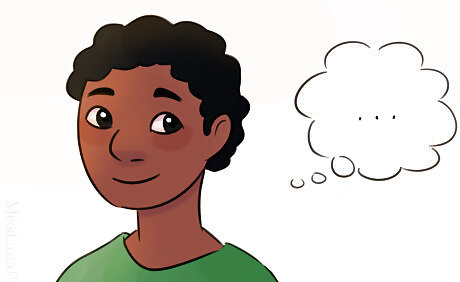
Know what terms you shouldn't use to describe a character with a mental disorder. All language used to describe characters with mental disorder should be respectful and as neutral as possible. Using negative terms for mental disorders in your writing can offend readers with mental health conditions. If another character were to discuss the character with a mental disorder, you should avoid having terms like these used: “Mentally disabled:” This is an outdated and offensive term to use that has been replaced with "mental illness" or "mental disorder". "Mentally handicapped:" "Handicapped" is outdated language that evokes the idea of a beggar holding a cap in their hand asking for money. "Mentally r*tarded:" This is an outdated term that has been replaced by "intellectual disability" or "developmental disability". Crazy, junky, psycho, mental, insane, deranged, nuts: These are insulting.Tip: If a character uses harmful or outdated language, call it out within the story. Just don't describe a character with a mental disorder as "psycho" or a "drug junkie."
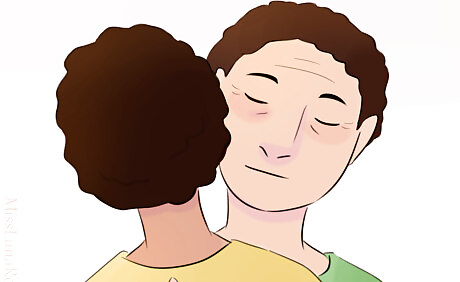
Handle story deaths properly and respectfully. In real life and in fiction, people with and without mental disorder might murder someone, die by suicide, get murdered, or die unnaturally. However, characters with a mental disorder dying/killing need to be properly written to avoid stereotypes and prejudice: If the character dies of suicide, use the term "died by suicide" instead of "committed suicide" to have others talk about their death, because "committed suicide" makes suicide sound like a crime rather than a cause of death. Try to avoid stories in which the person kills anyone, by accident or on purpose. This contributes to the stereotype that people with mental disorders are dangerous and should be shunned. And if the character makes a mistake, make it an understandable mistake and treat the character as a good person in general. If the character is murdered specifically, have the other characters do something about this or show care. Don't have everyone forget about the person who died simply because they had a mental disorder or were "different". Have the murderer face criminal consequences. If a character in a story dies in general, consider making another character without a mental disorder die. For example, if they and someone else were in a bad car crash, consider having both of them die rather than just the character with the mental disorder.

Try giving them a happy ending. So many people with mental disorders worry if they can do okay in life or if they even deserve good things. Your character can be a source of reassurance and hope. Even if the disorder is permanent, they can get what they need most in life and enjoy the good parts of it.

















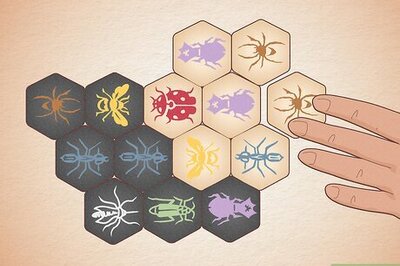


Comments
0 comment